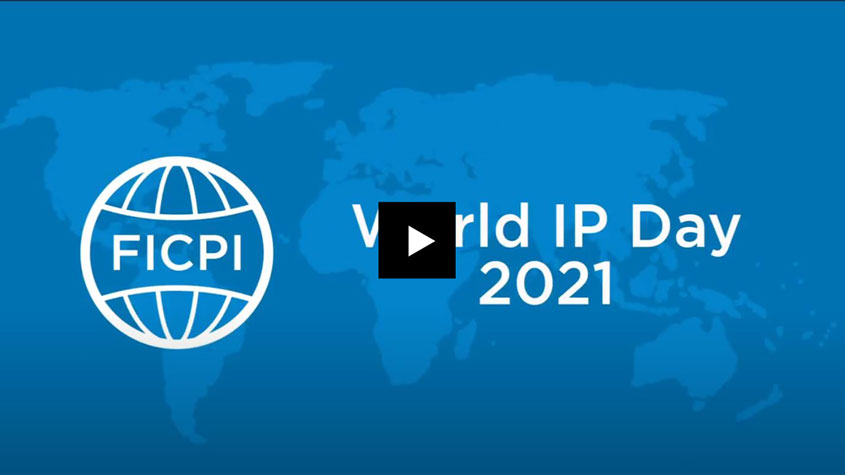

By Julian Crump, President of the International Federation of Intellectual Property Attorneys (FICPI) There's a myth that protecting intellectual property (IP) is the preserve of larger firms and is unsuited to smaller and medium-sized enterprises (SMEs). While large companies invest in IP for good reasons – to protect their products and services, discourage competition and create new revenue streams for themselves – IP undoubtedly benefits smaller businesses too.
SMEs that apply for patents, trademarks or designs are more likely to grow quickly and succeed than those that do not.

In fact, the evidence is that SMEs that apply for patents, trademarks or designs are more likely to grow quickly and succeed than those that do not.
Video: Hear from leading IP practitioners how IP can support SMEs A 2019 EPO/EUIPO study demonstrated that SMEs that have at least one IP right are 21 percent more likely to experience a growth period. Meanwhile, a 2021 update to the study found that fewer than 9 percent of SMEs owned at least one of the three main IP rights (a patent, trademark and design). By contrast, the figure is close to 60 percent for larger firms. This reveals a shocking disparity in the use of such a valuable business tool.

As well as serving as the current president of FICPI, I am a Chartered UK and European Patent Attorney, and a partner in the firm of Abel + Imray in London, Bath and Cardiff, UK and Spain. To look for examples of SMEs that use IP protection as a key element of their business success, my partners and I reviewed our list of clients. We did not have to look far. The results are instructive and hugely encouraging for other SMEs:
Over and above the underlying product or service it protects, IP is a valuable asset in its own right. Indeed, it can become a company's most valuable asset.


These examples illustrate how, over and above the underlying product or service it protects, IP is a valuable asset in its own right. Indeed, it can become a company's most valuable asset. Without doubt, there will be countless other examples among the clients of other IP firms worldwide.
IP rights create a protective wrapper around an intangible asset – locking in value and making it tradeable, through licensing, pooling, securitization or acquisition. Without IPRs, investments made by companies in developing new products and processes, or even in simply devising new product ideas, are at risk. It's a bit like creating a beautiful garden without putting up a fence to keep the rabbits out!
Without the help of a specialist IP attorney, an SME is unlikely to be able to identify the important points of novelty or broad utility of their inventions, which are vital for a successful IP strategy, or may simply be defeated by the registration process.
Indeed, for SMEs, tackling IP protection can seem impossible. Seeking to obtain patent, trademark and design rights is complex. There are relatively few "self-filers", and of those few, the majority abandon their applications or are unsuccessful in gaining granted rights.
As a patent attorney, I obviously have a self-interest in pointing out the depth and sophistication of the services offered by independent IP professionals to SMEs.
IP rights create a protective wrapper around an intangible asset – locking in value and making it tradeable through licensing, pooling, securitization or acquisition.
However, given the stakes, the clear evidence that SMEs holding IP rights prosper relative to others that do not, and the all-too-frequent failure of SMEs to complete the application process on their own, the conclusion is clear.
SMEs should look to protect their IP assets to support and accelerate their growth by locking in the value of their IP and building intangible assets which can be used to underpin a wide variety of different business models, with innovation at their core.
Independent IP attorneys bring wide experience from advising a broad range of different clients. They can look beyond the immediate applications of an invention to focus on its points of novelty, giving the patents a longer useful life as the businesses they protect flex and adapt to new markets and are made more attractive to investors.
The investment an SME makes in partnering with an independent IP professional has a significant return, not only in terms of a successful application, but also for its future as the owner of IP rights.

The WIPO Magazine is intended to help broaden public understanding of intellectual property and of WIPO’s work, and is not an official document of WIPO. The designations employed and the presentation of material throughout this publication do not imply the expression of any opinion whatsoever on the part of WIPO concerning the legal status of any country, territory or area or of its authorities, or concerning the delimitation of its frontiers or boundaries. This publication is not intended to reflect the views of the Member States or the WIPO Secretariat. The mention of specific companies or products of manufacturers does not imply that they are endorsed or recommended by WIPO in preference to others of a similar nature that are not mentioned.